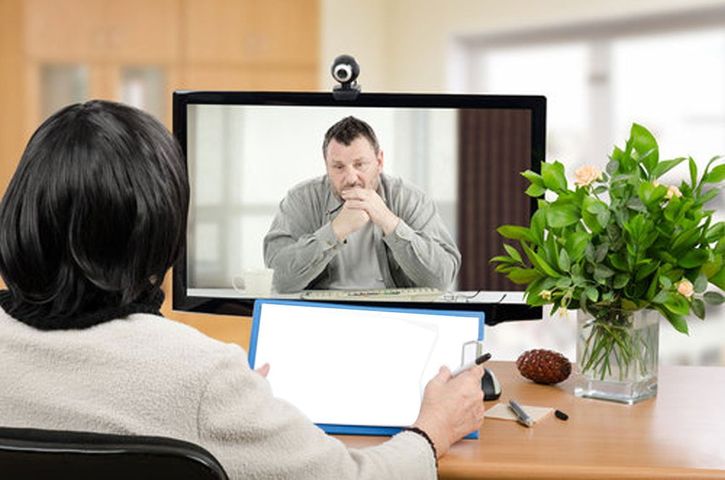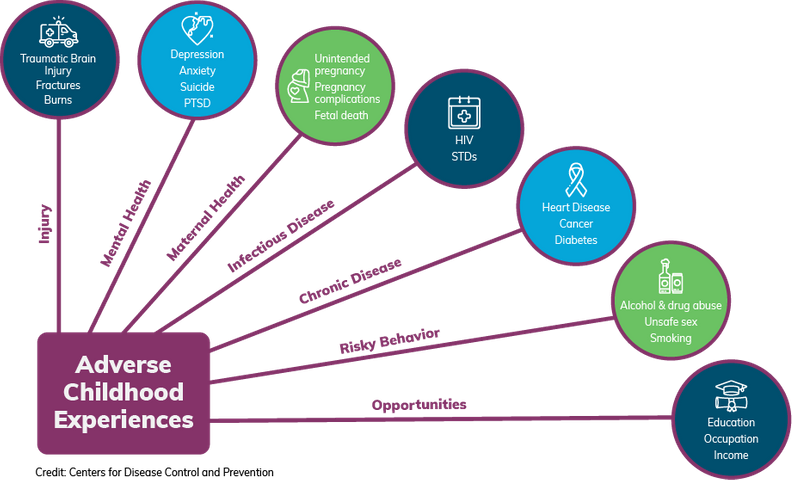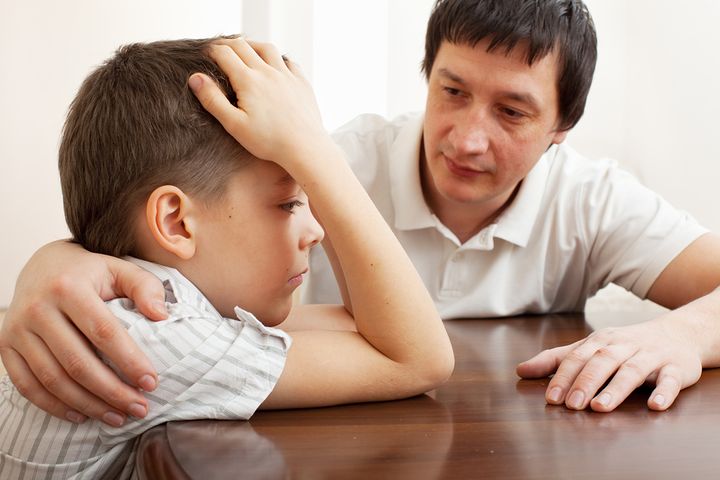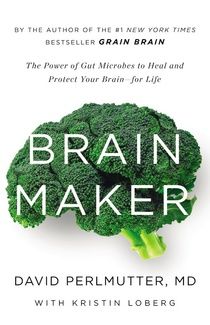My Top Seven Skills to Get Your Relationship Back on Track
I’m a licensed couples therapist in Amherst MA and Austin TX and I see the same seven issues come up over and over again. The same predictable pattern, the same fight.
In my practice, I offer seven pieces of advice to help couples who come to see me. I have used them so often that I thought I would put this list together and share them with you. These skills are game changers to learn and if done repeatedly will give you the relationship you want. Overriding pattern takes intention and repetition.
more4 Ways to Know if Trauma is Impacting Your Life
What is trauma? And what are the costs of not addressing what happened to us? Read on for reflections from an Austin and Amherst trauma therapist.
We can no longer turn a blind eye. The cost is tremendous and tragic on an individual, relational and societal level. Trauma surely has been a word popping up a lot in our culture these days. All over social media, podcasts, revelations by celebrities, trauma this and trauma that. It has been used so much that I wonder if we have lost touch with what a trauma really is.
moreDoes online trauma and couples therapy work?
Yes! The connection with clients is PALPABLE. We can work through old hurts and traumas as if we are literally in the same room together. I have had so many adult clients who have moved into fulfilling and passionate lives and have brought more depth and connection to their relationships after online therapy. I have seen many times clients start to experience and live from their authentic selves. So much more space, creativity and energy!
So, yes! Online trauma therapy can help with anxiety, stress, depression and PTSD and major difficult experiences like a death in the family, break ups and life transition.
moreDoes childhood trauma affect your adult intimate relationships?
Reflections from an expert trauma therapist and couples therapist in Amherst MA and Austin TX.
- The answer is a big YES. A shout from the roof tops YES! So much of how we show up in our adult relationships are formed by what we went through as children. Especially when it comes to our adult intimate relationships. The rubber really does hit the road when we interact with our spouse or partner!
- In this blog, I offer five ways we bring our adverse childhood experiences into adult relationships (especially under stress!). It's like we have relationship styles shaped by the past. And I call these different styles: The Disconnected, The Caretaker, The Mistrusting, The Pleaser, and the Perfectionist.
The Trauma of Loneliness
Dean Janeff
We are all hardwired for connection. No exceptions. It is in all of us no matter your history, trauma or the story you are telling yourself. I call it our birthright. When it feels safe to reach out and open your heart to connection with another, there is a feeling of calm, confidence, compassion and contentment. But when there is an obstacle to this natural inclination to reach out and take in connection, there is fertile ground for loneliness, depression and anxiety, not to mention the toll it has on cardiovascular health. Simply put, we need each other for our wellbeing.
Loneliness is at historic levels. And the pandemic has not helped matters. I have been really curious in the last two years as to why some of us can get our connection needs met and some of us are having a really hard time. Why is this? Well, I would say that it comes down to unaddressed childhood trauma.
If as a child it was unsafe to reach out for connection and comfort, it would make sense to close down that need. If the parents were too preoccupied with their stuff to be attuned, the child would over time find it threatening to reach out for comfort or soothing. If you reach out and get rejected over and over again, the next logical step is to shut down the impulse for connection and to build a protective shield around your heart. And by the way, this learned way of protecting ourselves is laid down in us at a very early age. I'm talking sometime before birth and the age of two.
moreWhy is it so important to heal childhood trauma?
Dean Janeff
I get this question a lot from clients who come to see me. They'll ask, "why bother with the past? Why can't I just bury it in the ground and forget about it?" And I respond with, "it's not so easy." I wish I could give them a pill or have them do a series of exercises. I wish there were an easy bypass, but there isn't. The way out is through.
If someone is coming to me with anxiety and panic or bouts of depression, it is because they have things from the past that have not been worked through. They still live in beliefs about themselves or the world that were formed at an early age and that still rule their lives.
For me, it isn't the adverse things from childhood that are the hardest part. Really, the hardest part is the meaning and beliefs we make from these experiences that we carry forward. Yes, of course, the abuse and neglect were horrible and undeserving. We were only innocent and helpless children after all. I do recognize the pain and hurt. And I have a watchful eye on the shameful beliefs and the distortions about ourselves that remain.
Dan Siegel, one of the foremost trauma therapists in the world, puts in very simply. If we don't resolve what happened to us, we are destined for struggle and hardship. The mother who was sexually abused will not have the capacity to connect with her baby. The husband who was raised by a critical mother will withdraw or rage under stress in the marriage. The adult male who was threatened when he was willful as a child will feel stuck and unmotivated. Or the woman who shuts down and isolates when feeling threatened and can't trust our impulse to ask for help and comfort.
moreSpending Way Too Much Time Together: A Relationship Survival (and Thriving) Guide In The Time Of Corona
Dean Janeff, LMFT
Spending more time than ever with your partner? Stuck at home, feeling like you are on top of each other? Not having that special time to reunite at the end of the day and checking in on the day’s events? Noticing a surge in defensiveness, withdrawal and criticism? Well, you’re not alone. Stress and anxiety are peaking and with it comes relationship strain. Here are seven tips for surviving (and even thriving) in your relationship during quarantine. Here are seven ways to help each other get to calm!
- Ask for what you need
- I’m going to start with this one. It is just so vital especially when we are breathing down each other’s necks. I wish we were mind readers, but we are not. If you need space, ASK for it. If you need connection or reassurance, ASK for it. It also helps to mention how you are feeling. Getting in touch with your sadness, fear or anger often leads to what you need: “Honey, I am feeling frustrated and need some space.”
- Judgement to curiosity
- Time to listen. It is time to put your agenda to the side for a moment and listen to understand your partner. You’ll have your time later. We as a society are really good at talking and getting our point across. And not very good at getting each other. In your relationship, there is another person with their own needs and dreams. It can really help if you can move from judging your partner to wondering what is going inside when they appear upset or frustrated. Mirror or repeat back what your partner is saying and ask them how they feel about it. I bet you will avoid a whole bunch of misunderstanding and fighting when you lead with curiosity and empathy.
Seven Tips For Staying Calm In Uncertain Times
by Dean Janeff
Wow. This certainly feels like a time of uncertainty. It also feels like a time of distance and disconnection. It is a double whammy. We feel isolated in uncertainty. You see, we as humans are all hardwired for connection. And when we don't have a sense of belonging or a felt sense of another, we notice an uptick in anxiety and feeling unsafe. As we live in these times of Corona, we are faced with feelings of hopelessness, stress and fear. Here are seven ways to be present in our pain but not get stuck in it. Here are seven ways to get to calm in uncertain times:
1. Find a routine.
This is super important when trying to manage uncertainty and anxiety. Experiencing control in our tasks can bring ease and guard against disabling feelings. Focus on the small moments of your life with presence and attention. Move from job to job with open awareness and open heartedness.
2. Know your news threshold.
Watch or read enough to stay informed and be careful not to overdo it. The news can feel addicting and anxiety provoking when viewed in excess. Listen to your body. If you start feeling fidgety or stressed, turn off the news and do the next best thing like take a walk or call a friend. We have so much coming at us through social media and various news channels that can easily overwhelm us. In fact, it is the stress that we feel when stuck to our screens that compromises the very part of us that we need to fight off Covid-19: Our immune systems. Managing our information intake well keeps us strong and protected.
moreA Family Lives Inside of Us: A Guide to More Happiness and Better Relationships
Dean Janeff
At a training in Minneapolis these past four days, I learned a lot about the inner child and inner adult we all carry inside of us. And I learned how incredibly healing it can be if we can find a way of nurturing and making the environment safe for our inner child. For some of us we still carry the hurt and pain of our childhood in a part of ourselves as adults.
It made me realize how much we may listening to our wounded child instead of the responsible and calm adult part of us. So what if we were to find a way to soothe and comfort our child part that was criticized and abused as a 5-year old or as a 16-year old? How much joy and fulfillment could we really experience in ourselves and in our relationships when we lead with our adult self and not our child parts?
Well, I say there is an immense opportunity for growth and transformation by doing so. Take for example the husband who approaches his wife after looking at the latest Visa bill: “What is this! How many times have we talked about keeping our spending in line? We can’t afford this!” So who is speaking here? Is it the adult part who asks for what he needs, feels safe, makes requests and says how he feels? Or is it the inner child angry and bitter from the years of neglect and criticism?
moreEMDR Therapy: Five Ways You May Be Surprised by Its Benefits
Dean Janeff
EMDR Therapy: Five Ways You May Be Surprised by Its Benefits
A friend asked me one day about some challenges she was going through. She told me how difficult it was for her to concentrate and how easily she became startled. She mentioned her sleep disturbances and how easy it was for her to get angry. As we talked more, I discovered that she had traumatic experiences in the past. I asked her if she thought she might have post-traumatic stress disorder or PTSD.
“How can this be,” she said. “I thought PTSD was for war veterans.” I explained that PTSD goes well beyond traumas like combat exposure and sexual trauma to traumas like the experience of an emotionally abusive family member or the experience of a series of painful relationship breakups. And I explained that her poor concentration, anger outbursts and sleep disturbances were probably the result of traumatic events from her past being re-experienced in present day like flashbacks. This was a real eye-opener for her.
I told her that was the bad news. But the good news was that there is way out for those living with the demons of trauma. She no longer needed to feel stuck in the past by painful experiences that kept her from the happiness and fulfillment of the present. There can be a way out for her, and that way is EMDR therapy.
moreCoping with Grief: 8 Tips for Supporting Yourself During the Holidays
Dean Janeff, LMFT, Grief Therapist in Amherst MA
"There is no way to predict how you will feel. The reactions of grief are not like recipes, with given ingredients, and certain results. . . . Grief is universal. At the same time it is extremely personal. Heal in your own way." Earl Grollman.
The holidays are in full swing. Christmas music is playing in department stores, markets, and coffee shops. People are out shopping, co-workers are talking about their holiday plans and neighbors are decorating their houses. It’s hard to escape. So how do you move through this time when you are actively grieving the death of a loved one? You don’t feel cheerful or celebratory. What do you do to manage the hubbub of the holidays and the strong emotions you are feeling inside?
Frankly, it’s hard. After all, you have many fond memories of someone who has died and had been so close. And now family is coming back together, but this time without someone you miss dearly and want so desperately to have back. The holiday season for many is the hardest time in the grieving process.
So here are eight tips and strategies to help you find some relief and solace through the rest of this year.
Find at least one person who can sit with you and bear witness to your grief. Someone who will not try to fix or minimize what you are feeling; just hold a loving and present space. So often we feel misunderstood and angry with well meaning platitudes like "he's in a better place" or "I know he's looking down on you." Sharing with another is a great way to be with the death of a loved one. Ask a friend, neighbor or family member you trust with your heart.
more
WAR Stands for We are Right: Six Ways to Turn to Love and Not WAR in our Intimate Relationships
Dean Janeff
If you think about it, wars are often waged as a way of proving that each side is right. So what’s the point of being right? Is it the satisfaction of getting one’s way? Or is it the satisfaction of seeing the other party lose? In the world of intimate relationships WAR leads to emotional disconnection which can be a death nail for any relationship. Over and over, romantic partners are faced with a choice: Try to be right or return to love. Many run-away problems result from partners looking out for their best interest and not looking out for the interest of the partnership itself. Unfortunately, for many of us we find it is easier or more comfortable to be right and harder to understand our partner in times of strife and stress. Here are six ways of looking out for the best interest of the relationship and laying down the need to be right:
Physical attunement: The body doesn’t lie. Our partners may tell us one thing, but the body may be telling us what is really going on. In conflict, learn to track your partner’s physical nuances moment to moment when you are face to face. Notice the moistness in your partner’s eyes or dilated pupils (sign of fear). When we stop for a moment to notice these signs, we can pick up on many cues for early resolution and calm. During a fight, it very well may be that a partner has deeper feelings below the anger like sadness and fear. Attune to those emotions rather than locking into battle and see how a tense encounter can be defused.
more
The Guts-Brain Connection and Mental Illness
I have heard for a quite a while about the connection between our guts and the health of our brain. But it was not until I read Dr. David Perlmutter's book, Brain Maker, that I realized how profound this connection really is. Dr. Perlmutter offers some easy dietary changes we can make to help minimize our risk of Parkinson's, Alzheimers, dementia and even mood disorders like depression and anxiety.
More probiotics, kefir, yogurt and kimchi in your diet can help fortify your gut which in turn can benefit mental wellness. I am hearing more and more of people contracting early onset dementia and Alzheimer's and hearing the increasing prevalence of depression and anxiety. Could some of that be a result of our diets?
I think so and the research though relatively new appears back this up. We are living much longer lives. Good eating habits established early can help ensure that we live the latter phases of our lives in good health.
moreTen ways of fighting well for couples: How to have a win-win resolution
Dean Janeff
A successful partnership is not one in which a couple has found a way to avoid fights. Fighting actually if done well is actually a sign of a strong relationship. We can’t always agree on everything and it is healthy for partners to face and work through contentious issues. Here are ten ways for you and your partner to fight well:
Use a familiar term of endearment like a smile, a well-placed touch or reassuring voice even during the heat of battle. It allows each partner know that they can make it through this even after the end of the fight.
Speak less especially when you feel activated. More words can create misunderstanding or anger when a few words of reassurance was all that was needed.
Take a deep breath to calm your nervous system. It allows for a better judgment, patience, and a better chance of hearing and understanding your partner.
Build a secure relationship so that when you fight you know that there are no losers. Know that the relationship is not on the line when you fight. You are in it for the long haul, and you will be just fine after the dust settles.
Use a signal that you both know. Come up with it when not fighting. It could be a wink or nod that tells the other partner that we will make it through this.
more













